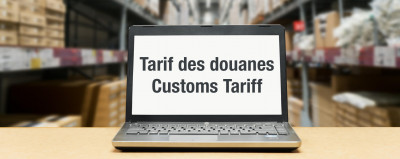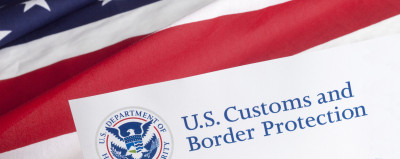




Often seen as a necessary evil in business, the customs process is somewhat misunderstood and neglected by international import-export companies. Since the year 2000, the burden of responsibility to comply with customs procedures has been put on the importer.
In the eyes of customs agencies, everything is considered to be in compliance up until it’s verified. At that moment, if your imports or exports are deemed non-compliant, penalties may apply in accordance with the Administrative Monetary Penalty System (AMPS). In light of the fact that these financial penalties have become so severe, it stands to reason that a company’s finance and accounting department should be the one designated to ensure regulatory conformity.
Despite its nominal authority over and influence on other departments, it is often the shipping and receiving department that, by default, assumes responsibility for customs compliance. Moreover, these other departments are so busy that they are not even aware of the activities of the shipping and receiving department.
Some managers pay for customs brokerage services without having a clue as to what the information in their own customs declarations is. Failure to pay close attention has real risks. Basic training programs in customs activities can be very beneficial for businesses, alerting them to the financial consequences if certain seemingly mundane documentation details are overlooked.



No available dates

No available dates


No available dates



No available dates

No matter what type of business, the situation is often the same: people assume that the compliance of customs activities is overseen by the customs broker in charge of formalities. Usually, it only takes two or three questions to identify the possible risks companies face and explain the potential impacts. Thus, all the more reason to sign up your employees for import and export training courses.
In the current context of international transactions, proper global trade compliance training makes perfect sense. Your company and your employees need to be accountable and understand the high financial risks of customs non-compliance. As an experienced customs broker, W2C is proud to offer high-level import and export training courses on customs procedures based on your requirements.
Our essential training classes Customs Compliance I: Overview and Customs Compliance II: Intermediate are indispensable for a solid understanding of the subject matter. These training opportunities cover a wide range of topics, including Canadian and American customs activities, customs clearance import-export issues, customs classification and compliance management as part of your global business activities.
Moreover, we also offer Tariff Classification I: Introduction to help familiarize you with the Harmonized Commodity Description and Coding System (HS), so that you can correctly classify your imported and/or exported goods.
Our specific online or in-person training sessions are shorter in duration than our essential training courses.
They provide you with an overview of a subject related to customs. Our import-export specialists will deal with topics such as importing into the United States, import and export rules, Incoterms, free trade claims and supply chain risks.
Version 3 of CARM came into effect on October 21, 2024. To help you become familiar with it, W2C has recently revamped its training on the topic.
CARM – Importer Obligations covers the latest changes in how the CBSA interacts with importers, customs brokers and other stakeholders in the supply chain. In addition to a general introduction to CARM, our training will explain the new obligations of importers, and show you how to register on the client portal and use its main features. We’ll also discuss customs processes (release, accounting, payment to the CBSA), delegation of access to employees and delegation of authority to customs brokers, as well as new financial security requirements.
Alongside our impressive range of training courses, we also offer two packages. The Essential package includes our three essential training courses, while the Essential plus package lets you choose an additional course to explore a specific subject in greater depth. What’s more, each of our packages comes with a discount of 15% and 20% respectively!
As a business manager, you may not have time in your busy schedule to devote to customs compliance processes. However, you still need to ensure that your employees in charge of the file have the knowledge required to manage customs activities.
That’s why, in addition to the essential training courses and online seminars, we also offer in-company customs training. No matter the number of people you wish to train, different options are available to you. Please visit our In-company training page to find out more.
Our training sessions are held online or in-person.
To help optimize your experience on our website, we use cookies when you visit. We respect your right to privacy, which means that you have the option of disabling the use of cookies that are not strictly required for the operation of the site. However, please note that blocking certain types of cookies may affect your experience and the services we make available to you.
Read our full Cookie Policy.